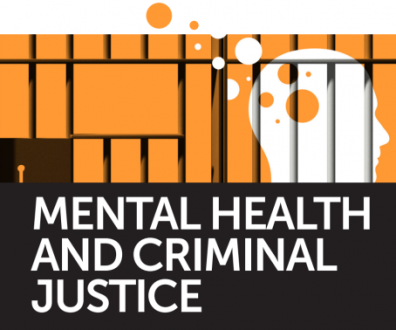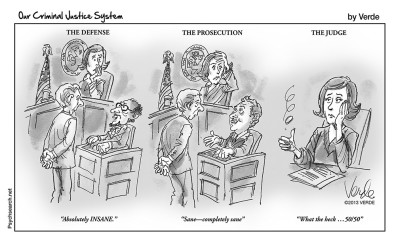Mental Health Concerns in the Administration of Criminal Justice
alta.corcilius
The issue of mental health in our criminal justice system is severely under-represented. We have individuals both taking advantage of and getting lost in the system which gives neither the help they need. The issue of misdiagnosing is where the problem begins; we lack the research we need to complement the diagnosing methods of physicians. Stigma concerning individuals with intellectual disabilities, especially offenders, is also causing conflict in putting them through the system. Minority standing is, of course, the underlying factor in all of this, considering the majority of individuals with mental disabilities in the criminal justice system are part of a minority group.
The plea of temporary insanity (if successful) can prove little to no consequences from the criminal justice system, yet rarely is it truly insanity that drives these offenders to offend. People that are part of the majority, wealthy and white that have the resources to put together a team of excellent lawyers are more likely to use this defence than those that are obviously actually psychotic. The problem with this is it leaves criminals who only claimed insanity, out of the streets to re-offend. Many legitimate psychotic individuals do not even know what is best for them, yet they still have to decide their own fate and many refuse to allow their lawyer to mount an insanity case for them. As a result, they get stuck in the system without proper services to give them the assistance they need that would be provided in mental health facilities. This is one of the many issues with pleas such as these; the wrong people use them and the right people don’t know how to use them and aren’t receiving aid on their behalf.
The stigma we place upon individuals with mental disorders leads many people to brush them under the rug so to speak, because what can they contribute to society? What will it hurt me to accidently put them in jail instead of a mental health facility? It hurts them, it hurts their families and it hurts the community around them when mentally disabled offenders don’t get the treatment they need to not offend again. Jail is not the equivalent of therapy or medication, which is the only thing proven to keep these offenders from re-offending.
In order to stop this problem we need to conduct more research, continue to make better and more assistance programs available to minority groups and change the way people with mental disabilities are tried. Research will make diagnosing more accurate and valid, programs will prevent minorities from ending up in the criminal justice system to begin with and could also contribute to getting rid of prejudicial bias within the system. Changing the way people with Intellectual disabilities are tried is the most important way to stop them from being improperly put in the general jail population. If they cannot make proper judgements they should not and can not make proper decisions on these judgements and should not be forced to.
To close, here are a few last words about mental illness:
1. So how do we fix this problem besides more research and better methods for diagnosis?
2. How much of a factor is race, sex and/or social status in deciding where/how an offender is sentenced?
3. Do you know someone with a mental disability who has had to go through the criminal justice system? How did it work out for them?


